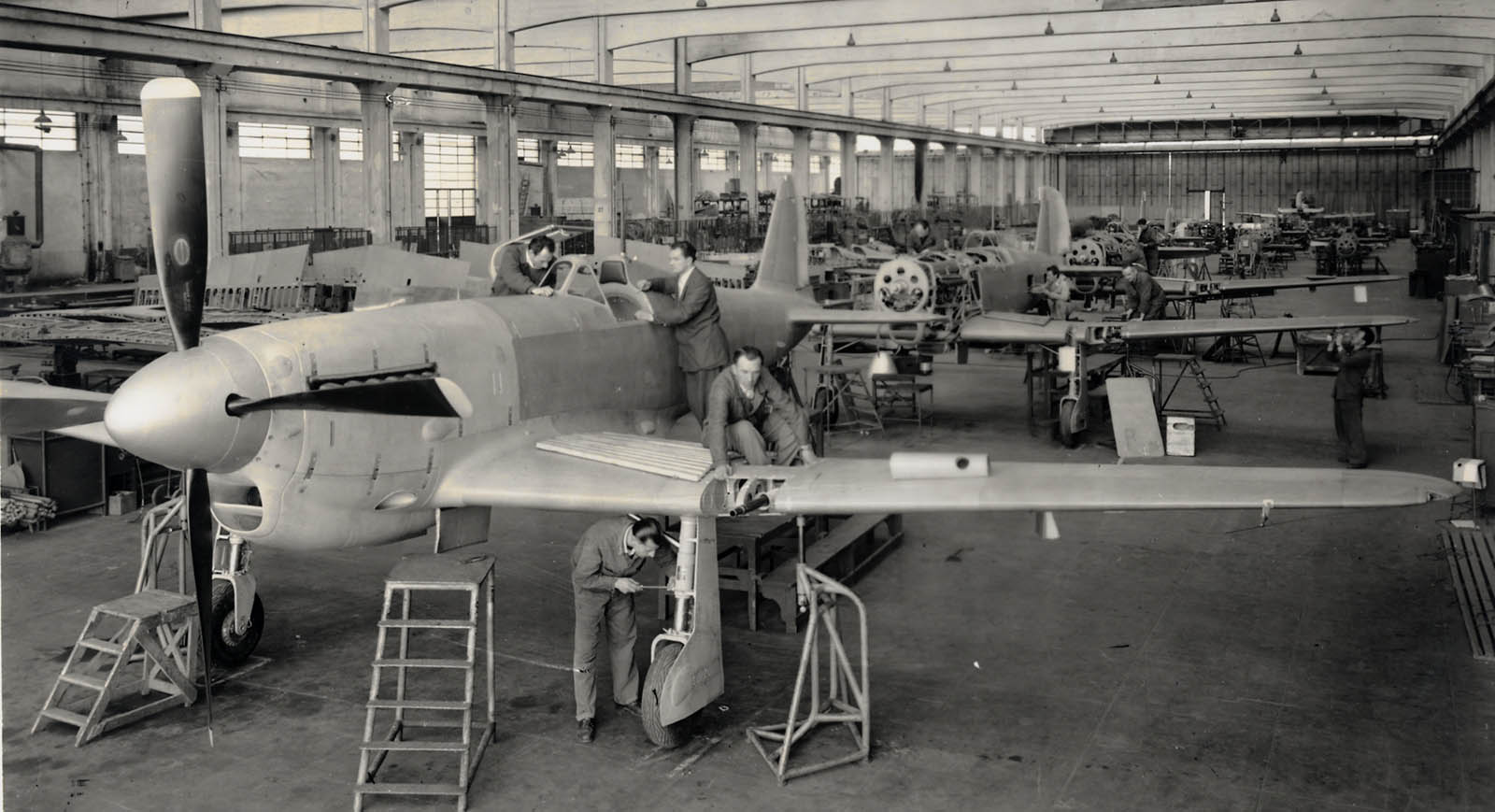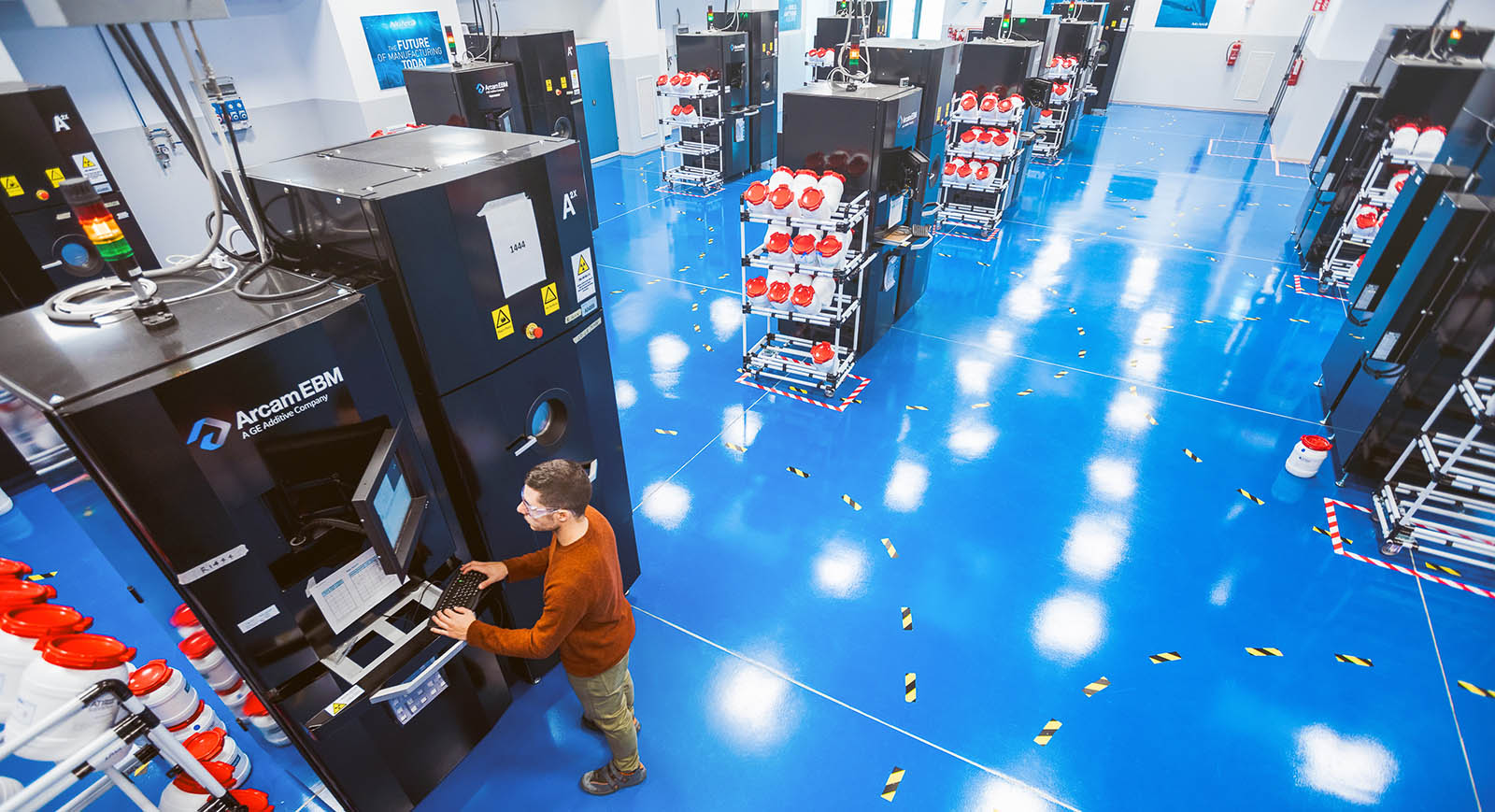Culture
Ten years of a new era
Exactly a decade ago, Avio Aero became part of GE Aerospace which has contributed to the more than 110-year history of a company that today is committed to innovating European aviation.
Aug 2023
One hundred and fifteen years have passed since the founding of Avio Aero. A remarkable portion of modern history: almost the entire 20th century, starting with the construction of both aircraft and engine, later focusing only on the latter, then on key engine’s technologies and components – with a short break even in aerospace – and specializing, during the last few decades, also in maintenance and service.
In comparison, ten years may seem a short period of time. It depends, in the words of a famous Italian philosopher, on whether this temporal dimension is experienced "in width or in length." Since August 2013, it can be said that Avio Aero – bolstered by a new brand name for its new era – has broadened its horizons, opening up parabolas that have led it to look again at the aircraft engine as a whole and, at the same time, to project itself into the sustainable future of aviation.
The process of acquisition by GE started almost a year earlier and was fulfilled just in that month. At that time, leading the integration team was the current CEO, Riccardo Procacci. "I remember there was a feeling in the air of both enthusiasm and mutual skepticism, in equal measure. The excellence of the integration project and the exemplary commitment of the people meant that enthusiasm prevailed and Avio Aero became the amazing company it is today" Procacci said.
In Procacci's words, the diversity that has always marked the teams operating at Avio Aero emerges strongly: "a heterogeneous and oddly assorted group from which we have managed to absorb the best. More specifically, this ability to continuously absorb and transform ourselves with our history is one of the distinctive traits of our corporate culture."
The cultural aspect has been central and has evolved steadily over these ten years. Pierfederico Scarpa, Vice President Marketing & Sales, one of Avio Aero's longtime leaders, who established relations with GE yet back in the 1990s, also stated that "there have been numerous benefits, both cultural and 'material,' and I am pleased to think they have been on both sides."
This ability to continuously absorb and transform ourselves with our history is one of the distinctive traits of our corporate culture
In fact, Scarpa also spent several years in Cincinnati, where GE Aerospace's headquarters is located. Between the 1990s and 2000s, he worked side by side with the American leadership team on legendary engine programs, as well as on technologies that defined modern aircraft propulsion.
"The integration with GE Aviation (now GE Aerospace) was born well before 2013, thanks in part to the professional and human relationships established between so many of us working on either side of the ocean. This led to mutual esteem, which grew stronger and stronger over more than two decades leading up to the acquisition. For these reasons, the event of August 1, 2013, was a natural culmination. These past ten years have been primarily the capitalization of what had been built before, without knowing what the future would hold. We built on a solid foundation, and this first step was crucial," Scarpa said.
The continuation of the story is equally solid. In fact, Avio Aero is now part of the group that leads the global aeroengine market and is recognized as one of the key European players in the industry. "The Customer Assurance Agreements (CAAs) signed in early 2013 have enabled us to continue to maintain and develop business with third-party customers. In the military sector, we have continued to support our Armed Forces as a national reference, to expand, and, thanks to a virtuous application of Golden Power, we have been able to maintain the European identity that has enabled us to participate as leading players in programs such as the Eurodrone, or to be chosen for the important projects of the European Defense Fund (EDF)".
Avio Aero is now a company with a much better positioning than in the past which allows us to seize the opportunities of the present
The list of successes and commitments profiled by Scarpa continues with helicopter products (for programs such as AW249 or those in collaboration with Korean Aerospace Industries) and the H-Series family of turboprop engines, all the way to the most promising defense programs of the future, such as the Global Combat Air Program (GCAP) working together with the British from Rolls Royce and the Japanese from IHI.
"All this is the result of a continuous investment in skills, capabilities and technologies, of the resulting authority and professional credibility we have earned in the field, of the network we have been able to build nationally and internationally, and of the visibility of the results we have achieved, including those with institutions. Avio Aero is now a company with a much better positioning than in the past. And this allows us to seize opportunities within the current environment of our industry," Scarpa concluded.
Recognition in a continental key and the global limelight that a group like GE guarantees, have also benefited the area of the company that oversees technology and product innovation. GE Aerospace's engineering, as early as 2013, was in fact conceived as a global team with branches on every continent, and highly specialized laboratories and development centers located in Mexico, Poland, India, Turkey, Czech Republic, Germany.
In these ten years we have invested heavily in all of our processes in order to consolidate the way our company works
"This has been a great advantage," Giorgio Abrate, vice president of Avio Aero Engineering, said on the subject, "because GE's colleagues were already used to dealing with different time zones, extremely varied English when it came to accents, and the need to share knowledge and operate across cultures. And this also made us realize the importance of diversity and being able to look at the same products and technologies from different angles. Clearly, an environment like this is extremely stimulating and enriching for more experienced and younger engineers alike."
Culture, brand positioning in the market, technological innovation, but also processes have been another opportunity in Avio Aero's new course to strengthen the internal work methodology. "In these ten years we have invested heavily in all processes in order to consolidate the way our company works," explained Alfredo Marin, Vice President Programs & Customer Support.
"The result," Marin continued, "is that those activities which, before GE, were often defined as 'solo', because they were based on the strong skills of a small part of the corporate population, have now become a ‘team sport’, resulting in great improvement in terms of both efficiency and effectiveness. All of this is summed up in the Lean philosophy which, especially in recent years, has led us to think in terms of processes and standardization."
An environment like ours is extremely stimulating and enriching both for more experienced and younger engineers
Marin, too, remembered mixed feelings and reactions during the early stages of integration, with uncertainty and curiosity alternating depending on personal viewpoints. "In the end, I think we were able to confirm our ability to work positively with everyone and show that being part of a company like GE Aerospace allows us to offer much more than in the days when we were controlled by private funds. Just think of the expertise that our engineering can bring to bear today. Our reliability and professionalism eventually convinced even the most skeptical."
In engineering, in fact, the benefits of the acquisition are clearly visible especially when looking at the work methodology and fundamental processes such as product design, which is the core business of the function. "The design process in the GE Aerospace world is based on the comparison between the project team and the independent design review team," Abrate added.
"The dynamics between these two teams underpins the quality of the project and requires humility and openness to debate and comparison. To make this process possible, we have created a community of CTHs (Controlled Title Holders) in Avio Aero, which by the end of the year will have one hundred engineers (Senior, Principal, Consulting or Chief Consulting), all of whom have accumulated in-depth disciplinary knowledge in their fields. This team is nurtured through a 'Technical Talent Review,' which operates annually and provides for the creation of a large group of talented people that allow for continuity and growth in our expertise. Lastly, the change in our mission from the development of components and subsystems to that of the entire propulsion system – strengthened by sharing experiences with our overseas colleagues – has given us another great boost."
"Today, Avio Aero is looking to the future of aviation – as it pursues its mission to allow millions of people around the world to fly in a safe and reliable way – with a real commitment to developing more sustainable solutions. It can do so thanks to the operational and design autonomy that sets it apart and that GE Aerospace itself facilitates," Riccardo Procacci said.
"For those of us who believe that air transport contributes substantially to the civilized growth of the world, bringing people and cultures together, but also believe that this should not be at the expense of the planet on which we live, the next few years will be incredibly challenging. Avio Aero is gradually increasing the value of its brand and, in turn, contributes to that of GE Aerospace. I can't imagine a more inspiring place to work today!"








